Viewpoint: Brexit puts UK on new economic path
- Published
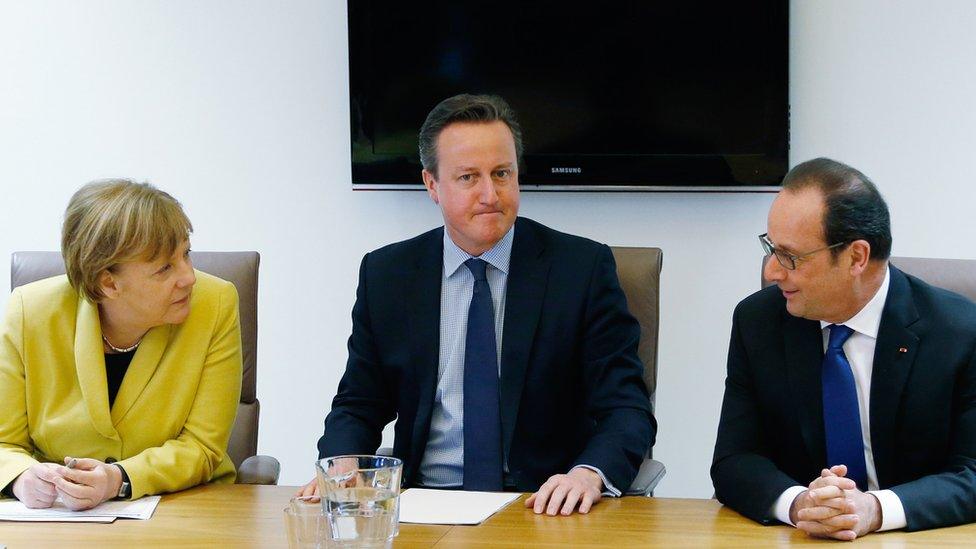
Germany, the UK and France (left to right) will no longer be the top trio in the EU
Germany is likely to be anxious after Brexit about the direction taken by the EU in trade and industrial policies.
On the whole Germany and the UK agree on the need for free-market and sound-finance policies, against the more protectionist and sometimes financially lax views of other member states.
The Council of Ministers is - in practice - the EU's most important arena of decision-taking.
But Germany, despite having the largest population and by far the most substantial economy, with an output almost twice that of Italy, has been no more powerful on the council than five other countries.
The UK, after Margaret Thatcher's election in 1979, was generally pro-liberalisation and internationalist in its dealings with the EU. So the UK and Germany have seen eye to eye on many issues.
Viewpoint: Brexit throws uncertain EU off balance
Without the UK as a spokesman for the market economy in the EU, it remains to be seen how other European nations will organise their thinking on these issues.
Differences of view within every European nation are profound, as part of a larger battle of ideas.
Slimmer EU budget
In recent decades the UK has usually been the second-largest net contributor to the EU budget, behind Germany.
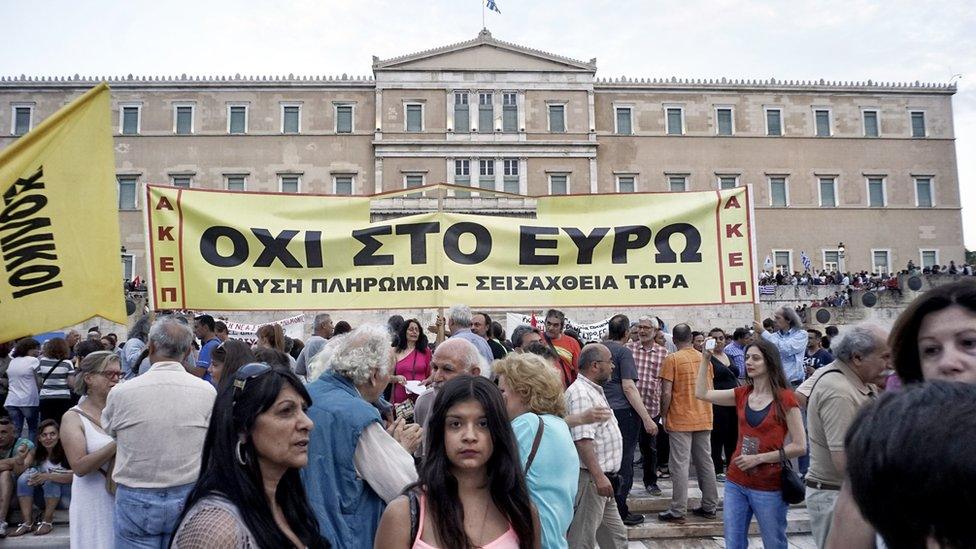
Athens, June 2015: Greek anti-austerity protesters say "No to the euro"
The EU will need to trim its spending by at least 10% because of Brexit. Many supporters of Brexit would suggest that the EU should reduce corruption and waste, and stop entirely its expenditure (under the heading "Global Europe") on EU foreign policy.
Of course, with the UK out of the EU, our interest in these questions is that of a bystander, not a participant.
Will the eurozone go full steam ahead to close political integration?
Jean Monnet (1888-1979) is often seen as the main architect of post-war European integration and has been quoted as saying "via money Europe could become political in five years".
The so-called Five Presidents' Report of 2015, external did envisage greater fiscal centralisation as a condition for the eventual success of the euro. If that were to happen, the EU would be moving closer to the full political union about which Jean Monnet dreamt.
But the euro, introduced in 1999, has not worked as he planned. There are obvious tensions between creditor nations (Germany, Finland, Luxembourg, the Netherlands) and the debtor nations (Greece particularly, but also Italy and Spain).
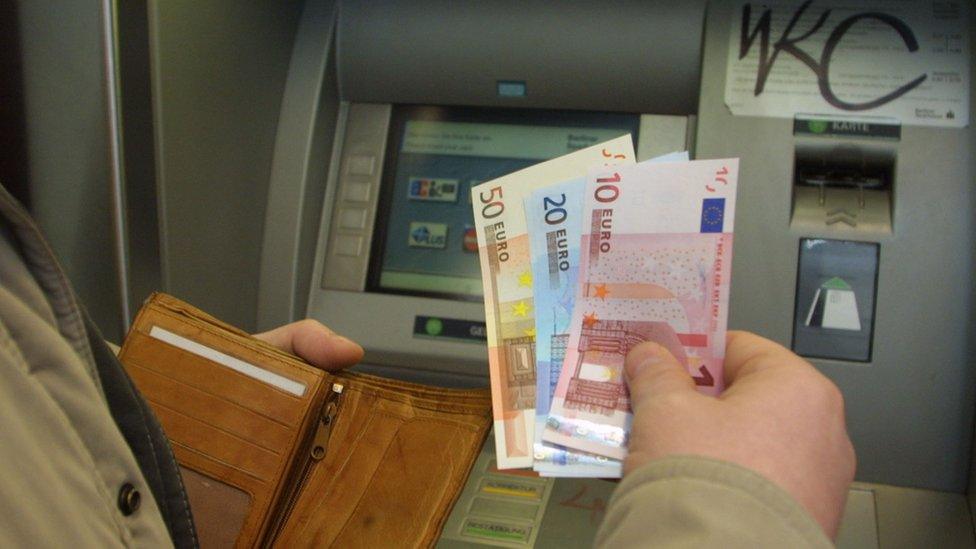
The euro became legal tender in Germany and 11 other EU countries in January 2002
'City can prosper'
With the UK again able to tailor financial regulation to its own needs, the City of London can prosper outside the EU.
The most-traded currency in the City is the dollar. But the UK is not a state in the US - it has not had to become the 51st state in order to maintain its high share of international financial business denominated in dollars.
Securities issued in many nations and in more than 100 currencies are bought and sold in London, and that will continue after Brexit.
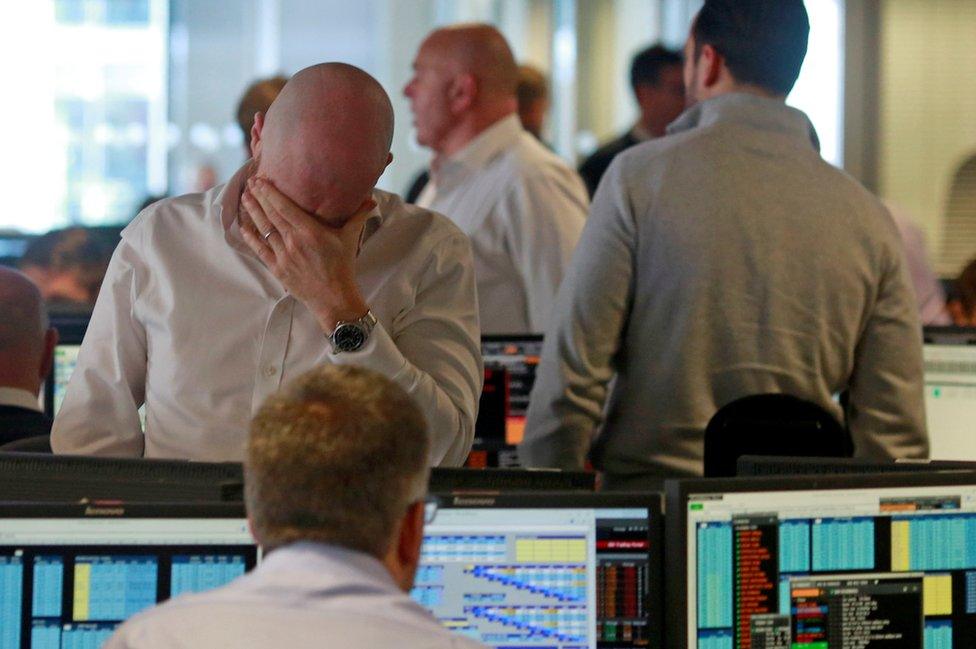
The pound's plunge - triggered by the Brexit vote - sent shockwaves through the City of London
The eurozone's share of world output has fallen heavily in the past 20 years. It is now only 15% and still declining.
The EU Single Market sounds appealing, but supporters of Brexit tend to be suspicious. They see it as an area of common and "harmonised" regulation, with the harmonisation intended to facilitate the free flow of goods, capital and people.
Trading independently
The free flow of people means unrestricted immigration from the EU, which Brexit is intended to stop.
Of course, when they export to the EU, British companies must comply with EU regulation, whether the UK is in the EU or not. But is there any reason why the UK should not seek an arrangement with the EU like that of, say, the US, Australia or Canada? They flourish without belonging to the Single Market.
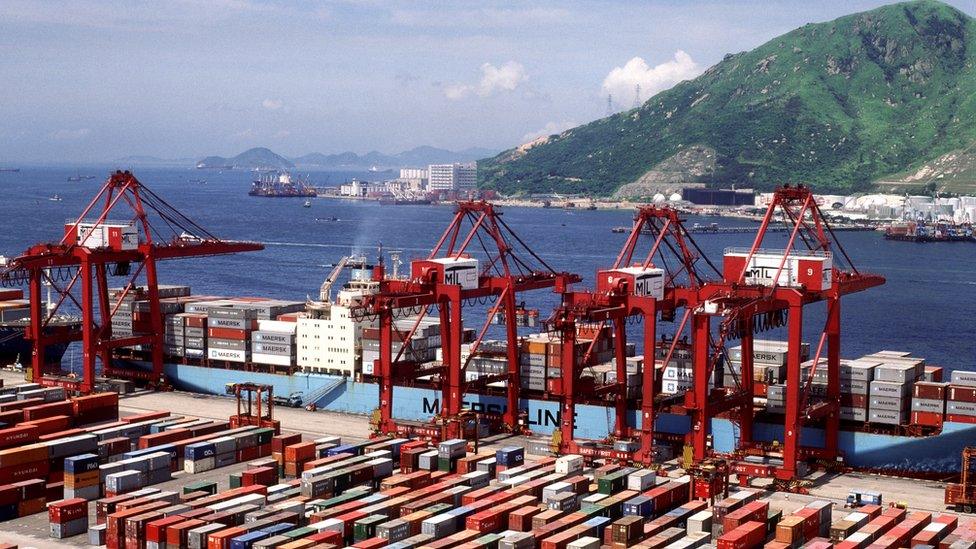
Hong Kong's global trading success is seen by some as a model for the UK
Arguably, the UK does need special deals with the EU in such areas as cars, aerospace and food, but it should pursue its own interests.
On no account must the UK pay any money to the EU for access to the Single Market, as Norway and Switzerland do.
Nations benefit from free trade. The acme of free trade is indeed the absolute, unconditional and unilateral free trade pursued by Singapore and Hong Kong.
There must be no doubt about Britain's ability to establish a successful trade policy of its own outside the EU.
Even nations as small as Iceland and Chile, with trade values that are fractions of the UK's, have extensive international commerce, based on both mutually advantageous bilateral trade deals and the multilateral framework established by the World Trade Organization.
Prof Tim Congdon is chief executive of the economic consultancy International Monetary Research Ltd.